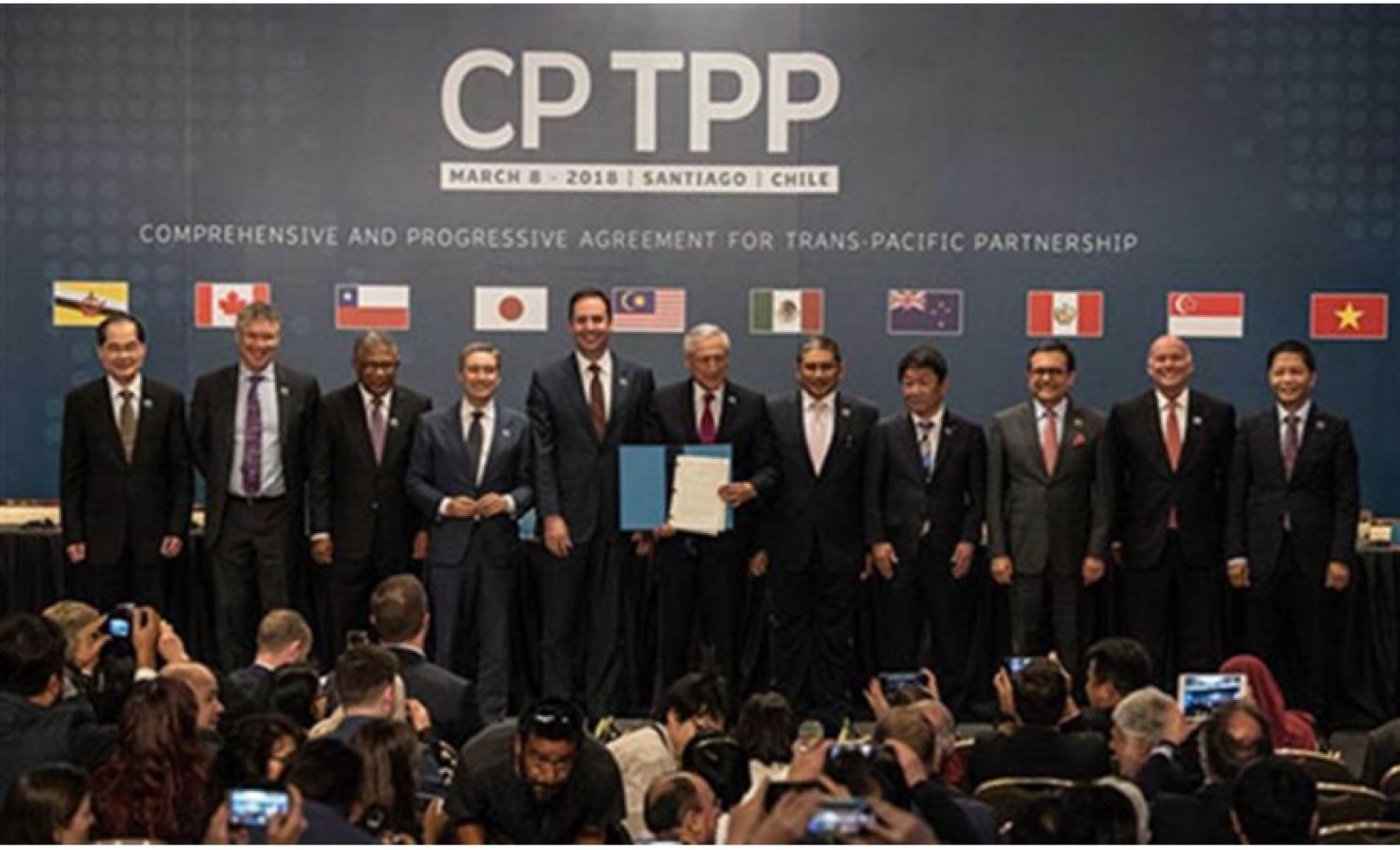
To Join CPTPP, Taiwan Has Three Major Openings to Tackle
China Times, September 25, 2021
Recently, mainland China applied suddenly via New Zealand for membership in the Comprehensive and Progressive Agreement for Trans-Pacific Partnership (CPTPP). Taiwan, while taking pride of its better economic fundamentals over mainland China, was surprised and followed suit six days later. Japan, the rotating chair of the CPTPP, welcomed Taiwan's application. But the mainland expressed its opposition.
As a matter of fact, in terms of level of opening or geopolitics, the application is a difficult challenge for both Taiwan and mainland China. Strict limitations imposed by the mainland on Taiwan’s international space, coupled with Taiwan's rampant protectionism, presents an even more difficult challenge for Taiwan.
During the time before and after the mainland submitted its application, China has banned the import of Taiwan's pineapple, wax apple and custard apple on account of the fruit pests found in the import quarantine. This has devastated the farmers in Taiwan and increased their fear for an uncertain future.
But the response of the government is far from satisfying. The administration of President Tsai Ing-wen politicized all these trade disputes and accused China of using "political considerations."
It then offered large sum of subsidies to farmers and asked them to spread the risk. However, what we see, during the pineapple ban in March and the ban on wax apple and custard apple in September, is contingency measures by the agriculture agencies in the government. No solution is proposed.
At the time when the Democratic Progressive Party (DPP) administration has been manipulating the anti-China sentiments which has led to the deterioration of cross-strait relations, we can expect that the mainland will continue to ban import of Taiwan fruits for having pests. If no solution is found, does the government have the resources to offer and expand the long-term subsidies to farmers?
In addition, Taiwan will have to tackle three openings in its accession to CPTPP.
- The opening of Japanese food from radiation-affected regions;
- The opening of agricultural products to CPTPP members; and
- The opening of cross-strait trade.
These three are interconnected. For example, if Taiwan cannot export its agricultural produce to the mainland, then Taiwan has to divert them to the markets of CPTPP member countries. If Taiwan becomes a CPTPP member, then Taiwan has to open its market to other CPTPP members, forcing Taiwan's agricultural produce to compete with those member countries strong in agriculture, such as Vietnam, Malaysia, etc. What is more, Taiwan and China’s accession to CPTPP would mean that Taiwan will have to open its market to the mainland. Is Taiwan really ready to face the fierce competition?
Practically speaking, as a small high-income economy, Taiwan has to make the hard choice of market liberalization to the whole world, and see the mainland Chinse economy as an integral part of the world. Hence, it is time to bury the hatchet across the Taiwan Strait cause by the Sunflower incident.
As to the issue of import of Japanese food from radiation-affected regions, we know the government cannot make any promise on the issue because if the referendum on the issue pass, by law the ban cannot be lifted. At present, Taiwan and mainland China are the only two economies in the world which still ban the import of these Japanese food products. As such, the Taiwan government should communicate with its people, citing import regulations adopted by the United States and South Korea on such food products as argument for opening up. We believe that the rational Taiwanese people will make the right choice. The question is whether we have the determination to make the wise decision.
After it becomes a member of CPTPP, Taiwan has to open its agricultural market to other members. The government can provide strong research on the breeding, cultivating, processing and quarantine, and ample resources as backup to the farmers against prospective impacts. This can also apply to other disadvantaged industries. It is not easy, but it is a true test to the ability of the government and an opportunity to create history.
Accession to CPTPP is a choice we cannot avoid. It is critical to the comprehensive liberalization and internationalization of Taiwan and a key to the elevation of our economy and development strategy. We have to succeed!
From: https://www.chinatimes.com/opinion/20210925003889-262101